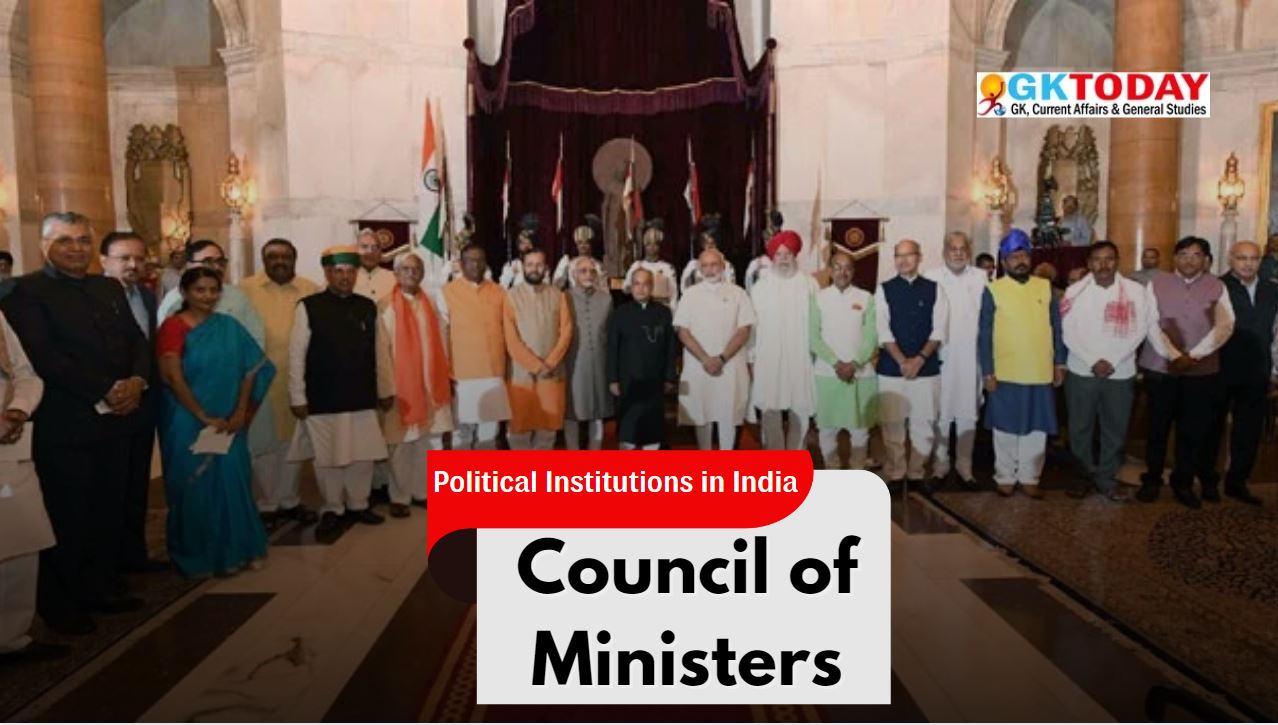Council of Ministers in India [UGC NTA NET Political Science]
The Council of Ministers is a body of senior officials who manage various government departments. It is led by the Prime Minister and includes ministers responsible for different portfolios. This body is crucial for the effective functioning of the government.
Composition of the Council of Ministers
The Council of Ministers consists of various categories of ministers:
- Prime Minister: The head of the Council, typically the leader of the majority party in the Lok Sabha.
- Cabinet Ministers: Senior ministers who oversee major ministries, such as Finance or Defence.
- Minister of State: Junior ministers who assist Cabinet Ministers.
- Minister of State (Independent Charge): Ministers who operate without reporting to a Cabinet Minister.
Appointment of Ministers
All ministers are appointed by the President of India based on the advice of the Prime Minister. The Prime Minister’s position is usually determined by the majority party in the Lok Sabha. This process ensures a government that reflects the electorate’s choice.
Tenure of the Council of Ministers
The Council of Ministers holds office at the President’s pleasure. However, the President must act according to the Council’s advice, as long as it retains the confidence of the Lok Sabha. This dynamic underpins the relationship between the executive and legislative branches.
Functions of the Council of Ministers
The Council of Ministers performs several key functions:
- Policy Formulation: It is responsible for creating and implementing government policies.
- Legislative Role: Ministers introduce bills and engage in legislative debates.
- Administrative Functions: The Council oversees the functioning of various ministries and departments.
- Advisory Role: It advises the President in executing his functions.
Collective Responsibility
The Council of Ministers operates under the principle of collective responsibility. This means that all ministers share responsibility for decisions made by the Council. If the Lok Sabha passes a no-confidence motion, all ministers, including the Prime Minister, must resign.
Types of Ministers
The Council comprises different types of ministers:
- Cabinet Ministers: Senior members who form the Cabinet.
- Minister of State: Junior ministers, either with or without independent charge.
- Deputy Ministers: Assist Cabinet Ministers or Ministers of State.
Decision-Making Process
Decisions within the Council of Ministers are made collectively. Individual ministers are bound by the decisions taken. This ensures a unified approach to governance and policy implementation.
Meetings of the Council
The Council meets regularly to discuss pressing issues. The Prime Minister chairs these meetings, facilitating discussions and decision-making. These gatherings allow for collaborative governance.
Role in Government Formation
The Council of Ministers is formed post-general elections. It is based on the majority party or coalition in the Lok Sabha. This process reflects the democratic choice of the electorate.
Resignation and Dismissal of Ministers
Ministers can resign or be dismissed by the Prime Minister. If the Prime Minister resigns, the entire Council can also resign. This interconnectedness marks the importance of leadership within the Council.
Legal Framework
The Council of Ministers is governed by Article 74 of the Constitution of India.
Relationship with the President
The President appoints the Council of Ministers and acts on their advice. However, there are situations where the President may exercise discretion. This relationship is crucial for the functioning of the government.
Accountability of the Council
The Council is accountable to Parliament, especially the Lok Sabha. It must maintain the confidence of the Lok Sabha to remain in power. This accountability is vital for a functioning democracy.
Political Dynamics
The composition of the Council can change based on political alliances and party strength. Electoral outcomes influence its structure. This dynamic nature reflects the evolving political landscape in India.
Significance of the Council of Ministers
The Council of Ministers plays important role in governance. It influences policy decisions and legislative processes. Its functioning directly impacts the lives of citizens.
Recent Trends in the Council of Ministers
In recent years, coalition politics have increasingly influenced the composition of the Council. The emergence of technocrats and experts in ministerial roles has also been notable. This trend reflects a shift towards specialised governance.


